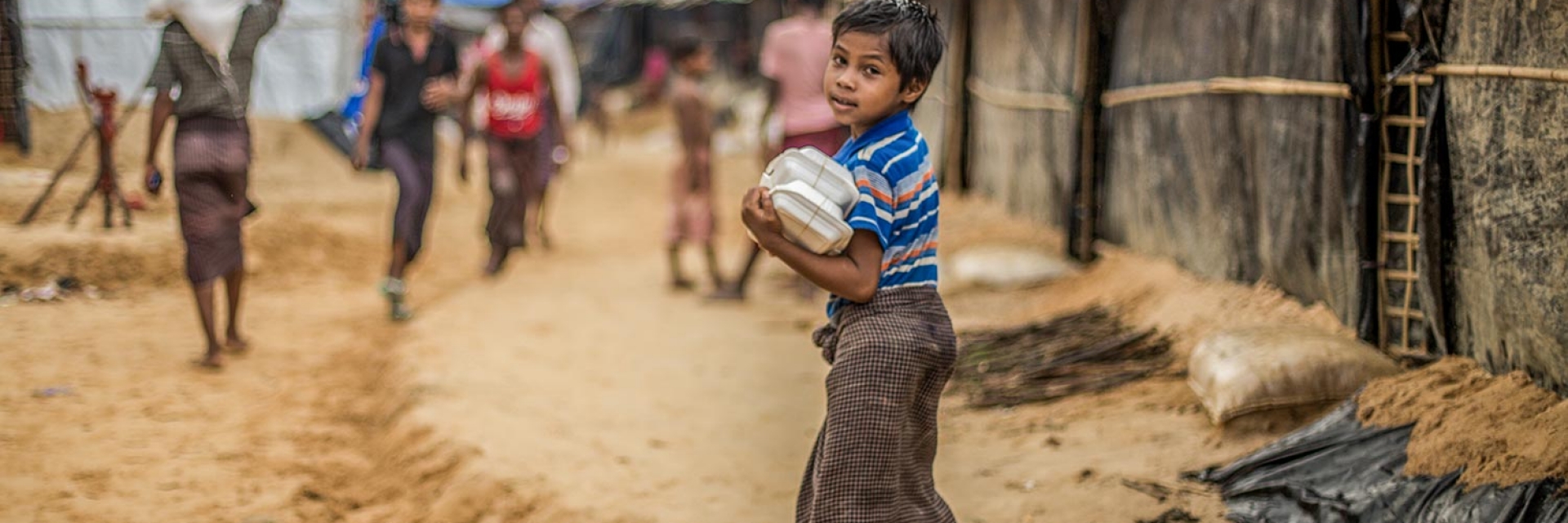
Hossein*, 7, takes much needed food to feed his mother and siblings. They are in a refugee camp in Bangladesh, having fled Myanmar after Hossein’s father was arrested. Photo: CARE
Emergency food a growing concern for refugees in Bangladesh
At 7 years old, Hossein* should be in school, learning and playing with his friends.
However, after his father’s arrest in Myanmar, his family fled the country and is now in a refugee camp in Bangladesh.
Hossein says because he is the oldest, he takes on his father’s duties.
Hossein*, 7, receives food distributed by CARE for his family in the Balukhali settlement, Bangladesh. Photo: CARE
“I have been here for 26 days now. We live close to other women and their families, so we feel safe. At night it is very noisy, but I try not to get scared. Of all the things I miss from Myanmar, I miss my dad the most.”
Hossein is in charge of finding food and bringing it back home. Recently, he was one of more than 3,500 people who received cooked food from CARE.
“I like to go and get the food for us. I want my mother, brothers and sisters to be happy and healthy. I like the rice. But I make sure the baby eats first.”
CARE is one of many humanitarian aid organizations responding with life-saving humanitarian aid to thousands of refugees arriving in Bangladesh daily.
After walking for as many as 14 days with little food and water, hunger and malnutrition are often a pressing problem that many new arrivals face.
Humanitarian Coalition member organizations, like CARE, are on the ground giving people food and clean water.
In response to the growing influx of refugees, families like Hossein’s need emergency food, water, shelter and medical supplies.